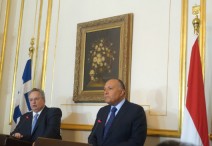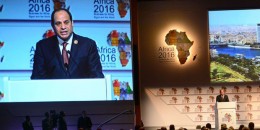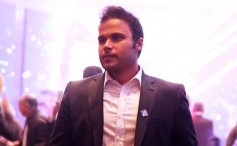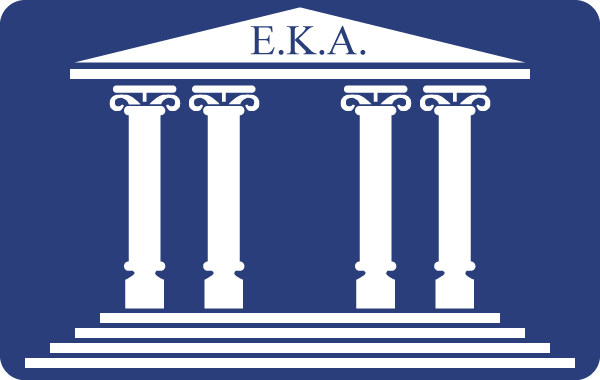Category: EGYPT
-

Joint statements of Mr. Kotzias and Mr. Shoukry, following their meeting
S. SHOUKRY: Today it is a great pleasure for me, as Foreign Minister of Egypt, to be receiving the Foreign Minister of Greece on his first visit to Egypt. The Minister and I maintain friendly relations, as do the two countries. Greece and Egypt enjoy a great and long common history and cooperation. The political…
-

Egyptian-Greek cooperation.. reinforced
Foreign Minister Sameh Shoukry convened on Wednesday with his Greek counterpart Nikos Kotzias for talks on boosting bilateral cooperation in the economic and political domains. Talks will tackle tripartite cooperation involving Cairo, Athens and Nicosia in addition to other regional and international issues of mutual interest. The two top officials will hold a press conference…
-

Sisi inaugurates Africa 2016 business forum
CAIRO: President Abdel Fatah al Sisi inaugurated Saturday the Africa 2016 international business and investment forum. Under the title, “Africa 2016: Business for Africa, Egypt and the world, the conference is an Africa to Africa investment forum aims at strengthening business ties within Africa, both at a business and presidential levels. The forum was inaugurated…
-

Egyptian oncologist lands on Forbes’ top 30 under 30 list
Egyptian oncologist Yehia Abugabal was recognised by Forbes among their annual 30 Under 30 list, an inspiring collection of the world’s 600 brightest minds (30 people across 20 categories); breakout talents and change-makers across different sectors, from education, to arts, to finance, who stood out in 2016. The 28-year-old physician is the co-founder of the International Cancer Research…
